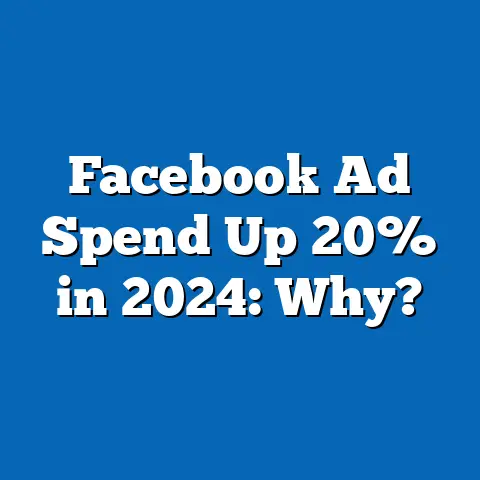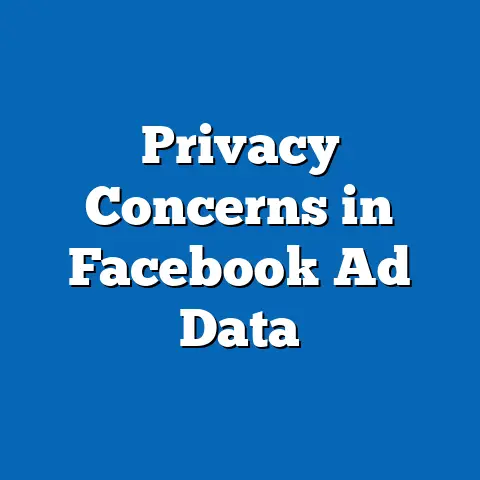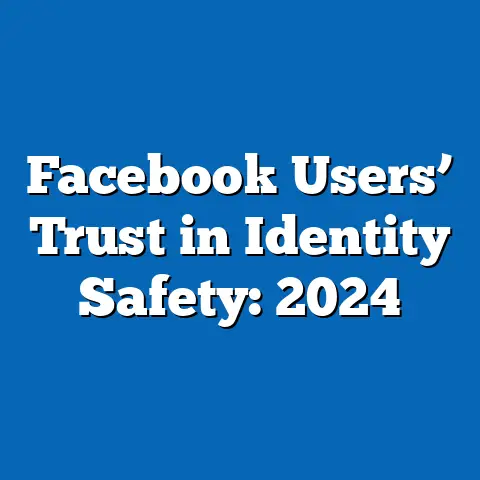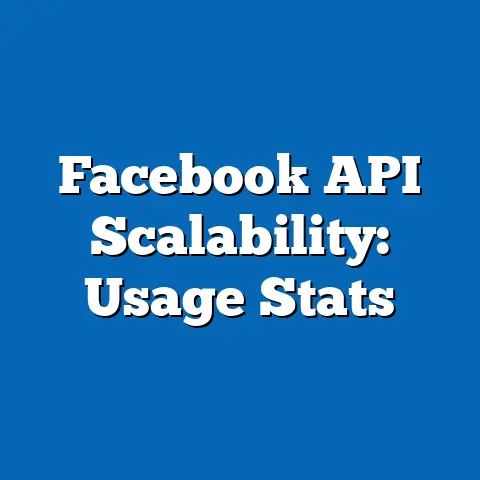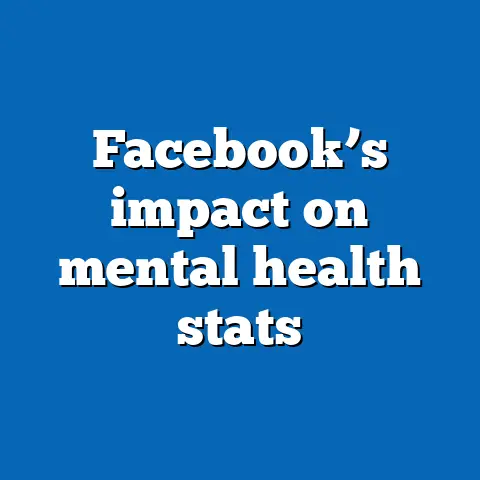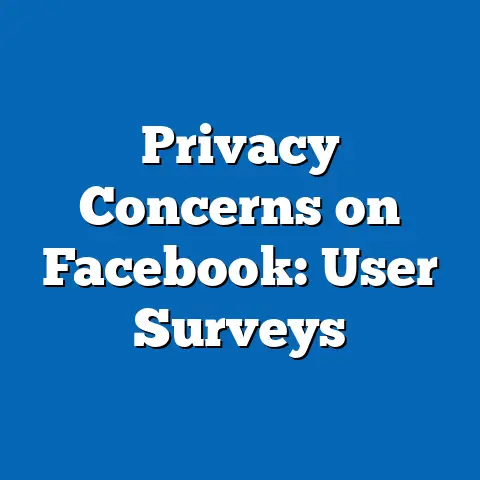Facebook News: Trust Crisis
In early 2023, Facebook achieved a notable milestone by reaching over 2.96 billion monthly active users worldwide, according to Meta’s latest quarterly report.
This figure cements its position as the largest social media platform globally, with a 6% year-over-year growth in user base.
However, beneath this impressive statistic lies a persistent challenge: a deepening trust crisis surrounding its news content, particularly among younger demographics like Gen Z (ages 18-24), where only 32% express confidence in social media as a news source, per a 2023 Pew Research Center survey.
This trust deficit is not a new phenomenon but has intensified in recent years due to concerns over misinformation, algorithmic bias, and data privacy.
As Facebook (now under Meta’s umbrella) continues to play a significant role in how billions consume news, understanding the dimensions of this crisis is critical.
This article delves into the trust crisis surrounding Facebook News, exploring key statistics, historical trends, demographic disparities, and the broader implications for digital information ecosystems.
The Scale of Facebook as a News Platform
Facebook remains a primary news source for a significant portion of the global population.
According to the 2022 Reuters Institute Digital News Report, 31% of adults across 46 countries use Facebook weekly to access news, making it the most widely used social media platform for this purpose.
In the United States alone, 48% of adults reported getting news from social media, with Facebook being the dominant player, as per a 2022 Pew Research Center study.
However, the platform’s reach does not translate to credibility.
Only 20% of U.S.
adults believe social media platforms like Facebook provide accurate news, a sharp decline from 29% in 2016, according to Pew data.
This erosion of trust is particularly pronounced when compared to traditional news outlets, where 39% of adults still express confidence.
The methodology behind these surveys often involves nationally representative samples, with Pew and Reuters Institute employing online and telephone polling across diverse demographics.
Their findings consistently highlight a growing skepticism toward Facebook as a reliable news conduit, even as its user base expands.
Historical Context: From News Innovator to Trust Crisis
Facebook’s journey as a news platform began in earnest with the introduction of the News Feed in 2006, which transformed how users accessed information by prioritizing personalized content.
By 2014, the platform had become a key news source, with 30% of U.S.
adults citing it as a primary channel, according to a Pew Research Center report from that year.
This growth coincided with the decline of traditional print media, positioning Facebook as a digital disruptor.
However, the 2016 U.S.
presidential election marked a turning point.
The Cambridge Analytica scandal, which exposed how user data was exploited for targeted political ads, coupled with the proliferation of “fake news” on the platform, led to a sharp decline in public trust.
A 2017 Gallup poll found that trust in social media as a news source dropped to 18% among U.S.
adults, down from 28% just two years prior.
Since then, Facebook has implemented measures like third-party fact-checking and algorithm tweaks to reduce misinformation.
Despite these efforts, trust levels have not fully recovered.
A 2021 Edelman Trust Barometer report revealed that only 22% of global respondents trust social media platforms for news, compared to 41% for traditional media.
Demographic Disparities in Trust Levels
Trust in Facebook News varies significantly across demographics, reflecting broader societal divides.
Younger users, particularly Gen Z and Millennials (ages 18-34), are more likely to use Facebook for news—43% report doing so at least occasionally, per Pew’s 2023 data—but they are also the most skeptical, with only 27% trusting the accuracy of the information they encounter.
This contrasts with older adults (ages 50+), where 54% use Facebook for news, and 34% express at least moderate trust in its content.
Geographic differences also play a role.
In developing nations, where internet access often correlates with social media use, trust levels are higher.
For instance, 58% of adults in Kenya and 49% in the Philippines trust social media for news, according to the 2022 Reuters Institute report.
In contrast, in developed nations like the U.S.
and U.K., trust hovers around 20-25%, reflecting greater access to alternative news sources and heightened awareness of misinformation risks.
Gender differences are less pronounced but notable.
Women are slightly less likely to trust Facebook News (18% vs.
23% for men in the U.S.), potentially due to concerns over online harassment and privacy, as highlighted in a 2022 study by the Knight Foundation.
Key Drivers of the Trust Crisis
Misinformation and Algorithmic Bias
One of the primary reasons for the trust crisis is the rampant spread of misinformation on Facebook.
A 2021 study by the Center for Countering Digital Hate found that false or misleading content about COVID-19 vaccines reached up to 65 million views on the platform in the U.S.
alone.
Despite Meta’s efforts to remove harmful content—claiming to have taken down over 20 million pieces of misinformation in 2021—critics argue that the platform’s algorithms still prioritize engagement over accuracy, often amplifying sensationalist content.
Algorithmic bias further exacerbates the issue.
A 2019 study by Northeastern University revealed that Facebook’s ad delivery system disproportionately targets certain demographics with polarizing content, even when advertisers do not intend it.
This creates echo chambers, where users are repeatedly exposed to biased or unverified news, eroding trust in the platform’s neutrality.
Data Privacy Concerns
Data privacy scandals have also played a significant role in undermining trust.
The 2018 Cambridge Analytica incident, where data from 87 million users was improperly accessed, remains a defining moment.
A 2019 Pew survey found that 74% of U.S.
adults felt less confident in Facebook’s handling of personal data post-scandal, directly impacting their perception of the platform’s news credibility.
Subsequent revelations, such as the 2021 Facebook Files leaked by whistleblower Frances Haugen, further exposed internal prioritization of profits over user safety.
Haugen’s documents showed that Meta was aware of the platform’s role in spreading harmful content but often failed to act decisively.
This has led to a sustained decline in trust, with only 10% of U.S.
adults believing social media companies protect user data, per a 2022 Pew report.
Lack of Transparency
Facebook’s opaque content moderation practices also contribute to the trust deficit.
While Meta publishes quarterly transparency reports—claiming to have removed 1.5 billion pieces of harmful content in Q2 2023—critics argue that the criteria for content removal or promotion remain unclear.
A 2020 report by the Oversight Board, an independent body reviewing Meta’s content decisions, noted that the company often fails to provide sufficient context for its actions, leaving users skeptical of its motives.
Comparative Analysis: Facebook vs. Other Platforms
When compared to other social media platforms, Facebook’s trust crisis appears more pronounced due to its scale and history.
Twitter (now X), for instance, is trusted by 25% of U.S.
adults for news, slightly higher than Facebook’s 20%, per Pew’s 2023 data.
This may be attributed to Twitter’s real-time nature and focus on user-generated updates rather than algorithm-driven feeds, though it too faces scrutiny post-2022 ownership changes.
Instagram, also owned by Meta, fares better among younger users, with 30% of 18-29-year-olds trusting it for news.
However, its focus on visual content limits its role as a primary news source.
TikTok, meanwhile, has surged in popularity, with 33% of U.S.
adults under 30 using it for news, but trust remains low at 14%, largely due to concerns over foreign influence and data security, as noted in a 2023 Gallup poll.
Historically, Facebook’s trust levels were comparable to other platforms until the mid-2010s.
Post-2016, however, its larger user base and involvement in high-profile controversies have made it a lightning rod for criticism, setting it apart from competitors.
Efforts to Rebuild Trust: Successes and Limitations
Meta has taken several steps to address the trust crisis surrounding Facebook News.
Since 2017, it has partnered with over 80 fact-checking organizations worldwide, covering content in more than 60 languages.
In 2022, Meta reported labeling or removing 85% of identified misinformation before users reported it, a significant improvement from 60% in 2019.
The platform also launched the Facebook News tab in select countries, curating content from verified publishers.
A 2021 internal report claimed that 70% of U.S.
users who accessed the tab found it a valuable news source.
However, adoption remains limited, with only 10% of users regularly engaging with the feature, per a 2022 Reuters Institute survey.
Despite these efforts, limitations persist.
Fact-checking cannot keep pace with the volume of content—Meta processes over 4 billion posts daily, as per its 2023 transparency report.
Moreover, algorithmic changes often face backlash for perceived censorship or bias, further complicating trust-building efforts.
Visualizing the Trust Crisis
If visualized, the trust crisis could be represented through a line graph tracking trust levels in Facebook News from 2014 to 2023, using data from Pew Research Center and Edelman Trust Barometer reports.
The graph would show a peak around 2015 (approximately 30% trust) followed by a sharp decline post-2016 to a low of 18% in 2017, with a gradual but incomplete recovery to 20% by 2023.
A bar chart could complement this, comparing trust levels across demographics (age, gender, region), highlighting the stark generational divide.
Additionally, a heatmap could illustrate global trust disparities, with darker shades representing higher trust in regions like Sub-Saharan Africa and Southeast Asia, and lighter shades in North America and Western Europe, based on Reuters Institute data.
Such visualizations would provide a clear, at-a-glance understanding of the trust crisis’s scope and nuances.
Broader Implications and Future Trends
The trust crisis surrounding Facebook News has far-reaching implications for how information is consumed and disseminated in the digital age.
As a platform influencing the news diets of nearly 3 billion people, persistent skepticism could undermine democratic processes, especially in regions where Facebook is a primary news source.
The 2021 Capitol Hill riot in the U.S., partly fueled by misinformation spread on social media, underscores this risk, with 67% of participants citing online platforms as their information source, per a 2021 University of Chicago study.
Looking ahead, rebuilding trust will require more than technical fixes.
Transparency in algorithmic decision-making, stronger regulatory oversight, and user education on media literacy are critical.
However, with only 15% of U.S.
adults believing social media companies will self-regulate effectively (Pew, 2023), external pressures—such as the European Union’s Digital Services Act, which imposes fines up to 6% of global revenue for non-compliance—may force change.
Demographic trends also suggest a shifting landscape.
As Gen Z increasingly turns to platforms like TikTok and Instagram for news, Facebook risks losing relevance among younger audiences unless it addresses trust concerns.
Conversely, its stronghold among older users and in developing markets offers a potential lifeline, provided it can balance growth with credibility.
Finally, the trust crisis reflects a broader societal challenge: the tension between technology’s democratizing potential and its capacity for harm.
Facebook’s role in shaping public discourse will remain central, but its ability to navigate this crisis will determine whether it can reclaim its position as a trusted news source or continue to be viewed with skepticism by a growing share of its user base.
Conclusion
Facebook’s trust crisis in news is a multifaceted issue, rooted in misinformation, privacy scandals, and a lack of transparency, as evidenced by declining trust levels from 29% in 2016 to 20% in 2023 among U.S.
adults (Pew Research Center).
While the platform’s scale—2.96 billion monthly users—ensures its influence, demographic divides, particularly among younger users, and regional disparities highlight the uneven nature of this challenge.
Efforts to rebuild trust through fact-checking and curated news tabs show promise but fall short against the sheer volume of content and persistent user skepticism.
The broader implications extend beyond Facebook to the future of digital information ecosystems.
As trust continues to erode, the platform’s role in shaping public opinion, elections, and societal discourse faces scrutiny, necessitating systemic changes in policy, technology, and user engagement.
Whether Facebook can reverse this trend remains uncertain, but its response will likely set a precedent for how social media platforms balance scale, responsibility, and credibility in an increasingly connected world.

